The rise of the electric scooter: why the new breed is taking over our streets
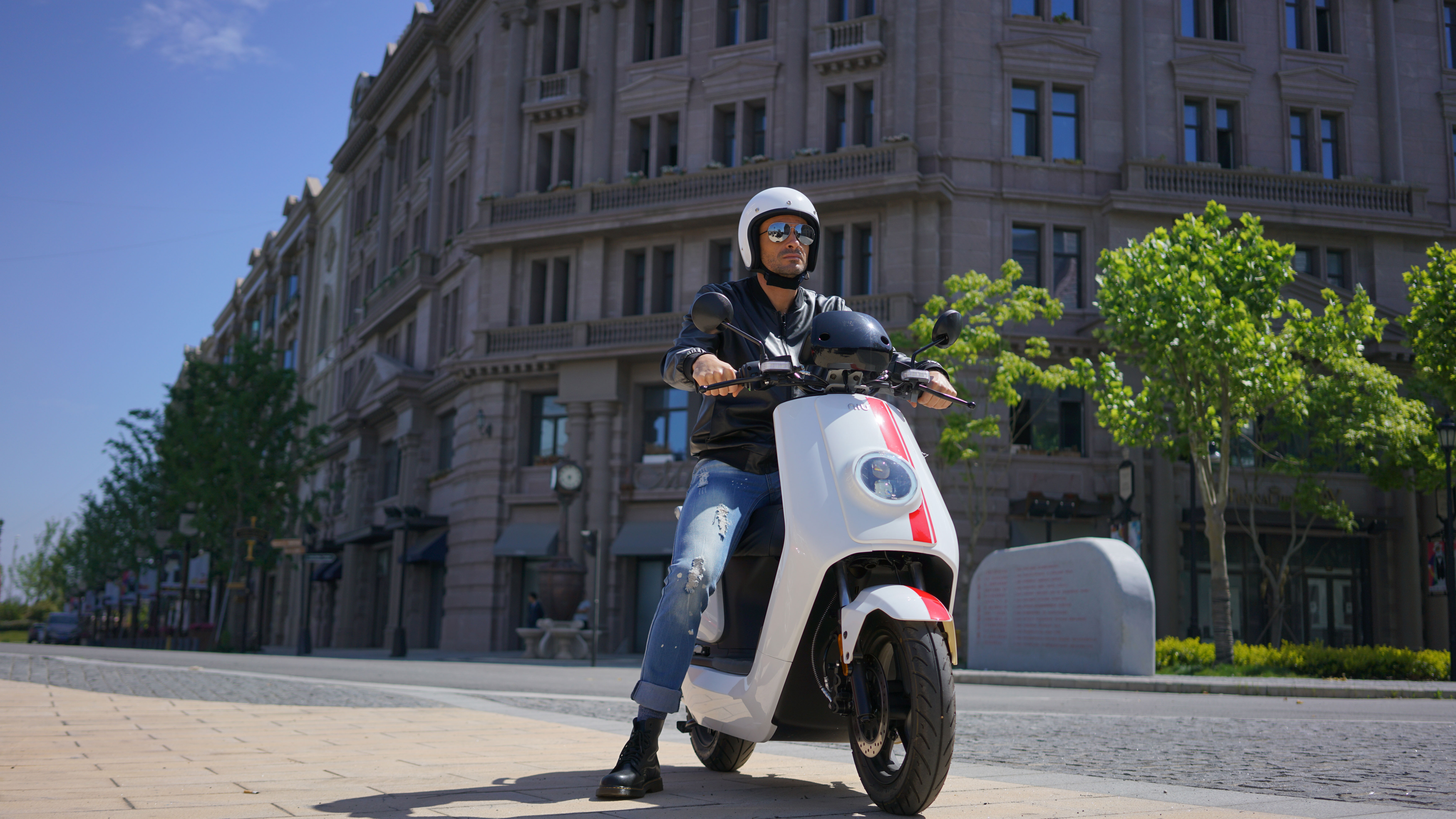
Conventional petrol scooters have long been a popular option for people living in congested cities with countless clogged up roads and nowhere to park. A no-frills two-wheeler with a zingy little combustion engine has been the perfect solution for zipping through traffic, plus they take up much less space than a car and they’re super-economical too.
Now, though, there’s a new alternative in the shape of the electric scooter. These battery-powered machines have been with us for a while, but the choice today is growing steadily and that also means prices are falling. A variation on the e-scooter theme comes from NIU (pronounced ‘new’), which has just launched a brace of new models in the shape of the M+ and the N-GT.
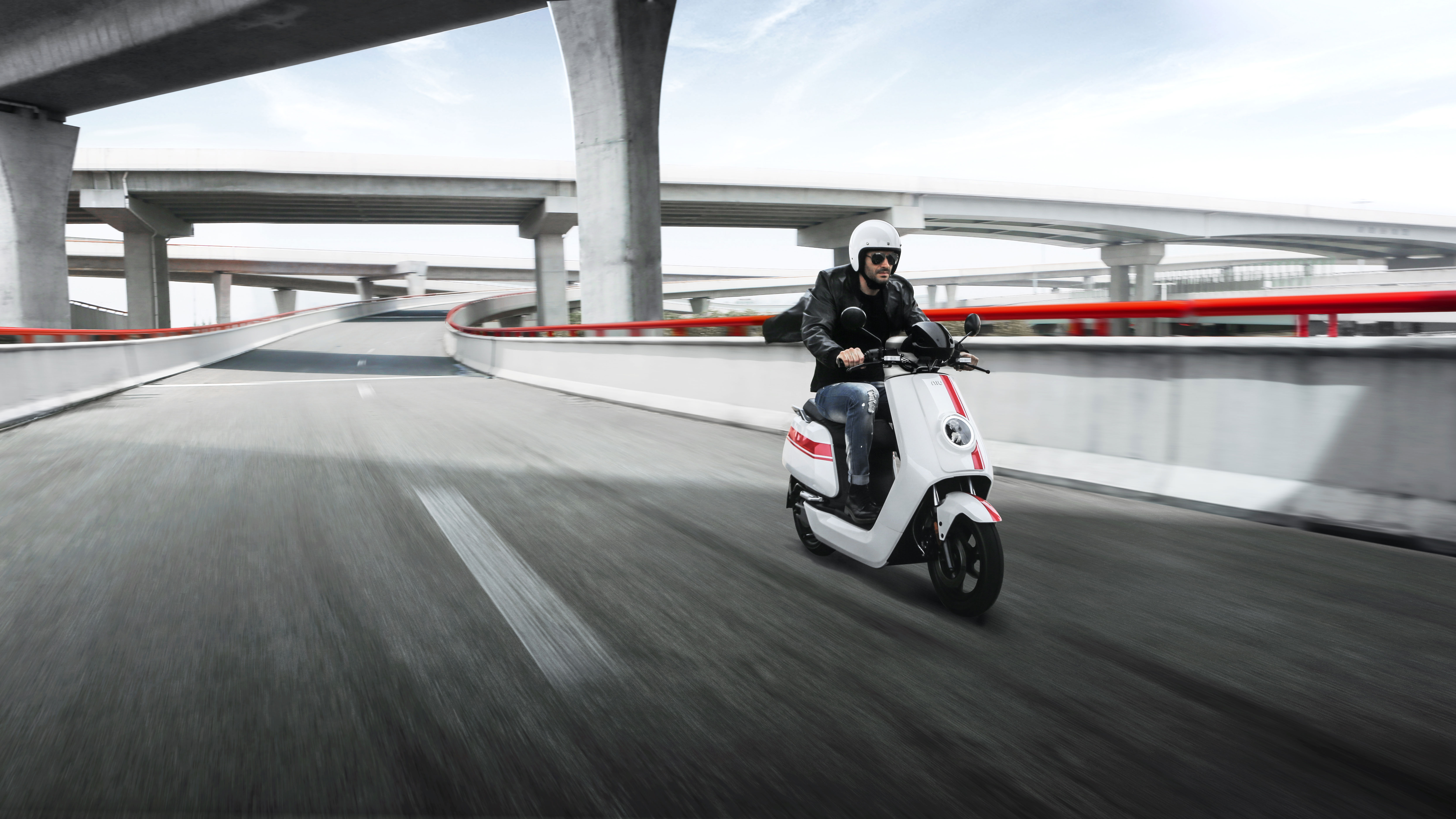
The company recently held its Urban Mobility Summit in Paris, which was aimed at joining up the dots when it comes to a cohesive plan for tackling the problem of our packed city streets. The central theme was their products, but panelists also talked about ownership of a two-wheeled e-machine, scooter sharing and charging infrastructure.
While NIU scooters are already big in their native China, these new models have been tweaked to suit European consumers and meet current legislation too. Boosting their appeal is the use of quality components. NIU has enlisted Panasonic for the battery part of the equation, with the N-GT boating a pair of removable 60V 35Ah lithium-ion packs, which in turn drive a Bosch 3000W electric motor.
NIU reckons this makes the N-GT good for a top speed of 70km/h and a 130km range. The battery can also be completely recharged in 3.5 hours via the mains. Meanwhile, the M+ features a 48V42Ah battery paired with a Bosch 1200W motor, which will push the smart scooter to 45km/h and deliver a range of over 100km.
The other neat thing about the NIU scooter package is that they come complete with a prepaid Vodafone SIM card, which lets you enjoy a 24/7 connection to a companion NIU app. This is where the smart aspect of the e-scooter comes into play because the app offers GPS, anti-theft tracking, remote tracking and scooter diagnostics. Plus, there’s access to a help centre if you need it. That said, you’re still able to use the scooter if you’re not fussed about the Vodafone side of things.
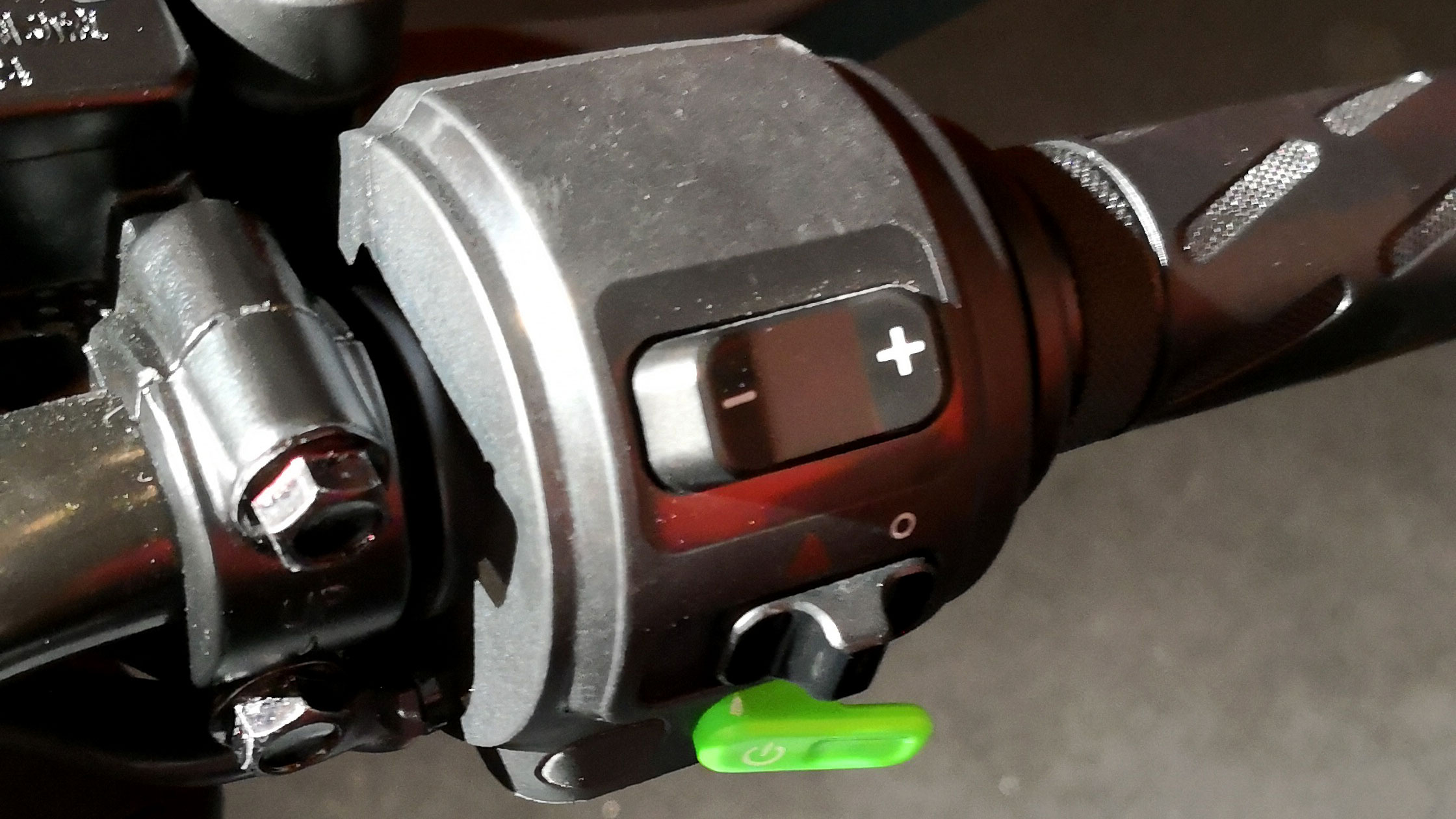
At the NIU event, attendees were invited to climb aboard and take a tour of the choked Parisian city streets. Even with moist and slightly slippery surfaces to contend with, most returned back to base with a positive feeling. “These scooters are providing people with real range,” said director of international, Joseph Constanty “And there’s that top speed of over 70kmh (about 43mph), so they’re a very different kind of machine.”
Sign up for breaking news, reviews, opinion, top tech deals, and more.
Which for anyone thinking an e-scooter will lack the get-up-and-go of a petrol machine means something of a surprise is in store. While it’s not quite a maxi-scooter, the effect of that beefy battery on the N-GT powers you along as if you’re riding something like an 80cc petrol counterpart. It’s a doddle to operate too and therefore ideal for anyone wanting a hassle-free commute.
Once you arrive at your destination you can plug it into the mains electricity supply for a re-juice, or use a recharging point along the way. But, as most scooters are destined to be relatively short journey machines you might get back home again on one charge.
Smarter scooters
NIU is just one of numerous options when it comes to electric scooters though. And, they are all essentially variations on the same concept due to the limitations of having a design that incorporates an electric motor that’s powered by the battery pack. However, thanks to the way technology is getting smarter, manufacturers are now able to squeeze much more from this combination.
Much like an electric car, the highlight is plenty of instant torque. As a result, an e-scooter is quite a lot of fun it has to be said. Which is why something like the Super Soco might capture the imagination of style-conscious younger riders. At less than £3,000 (about US$4,000, AU$5,500), this is a cheap and cheerful though pretty sporty-looking urban-mobility machine. It comes with removable batteries for easy recharging and is suitable for 16-year-olds with a provisional licence due to its limited top speed.
At the other end of the spectrum there’s the BMW C-Evolution, which is everything you’d expect from this premium brand. Unfortunately, it has a price tag to match at around £12,000 (about $15,000, AU$20,000), but for that you get very potent performance that propels you to speeds of up to 85mph. What’s more, there’s regenerative braking, which means that you’re recharging your own battery as you travel. It also seems to be nailed together very nicely too.
Even legendary scooter brand Vespa has seen the potential of adding an electric model to its range. The company is currently developing the Vespa Elettrica, which comes with looks not too dissimilar to the conventional and much-loved original design. However, under the funky body panels there’s a lithium-ion battery that will offer up 100km of range from one charge. Deliveries begin later this year.
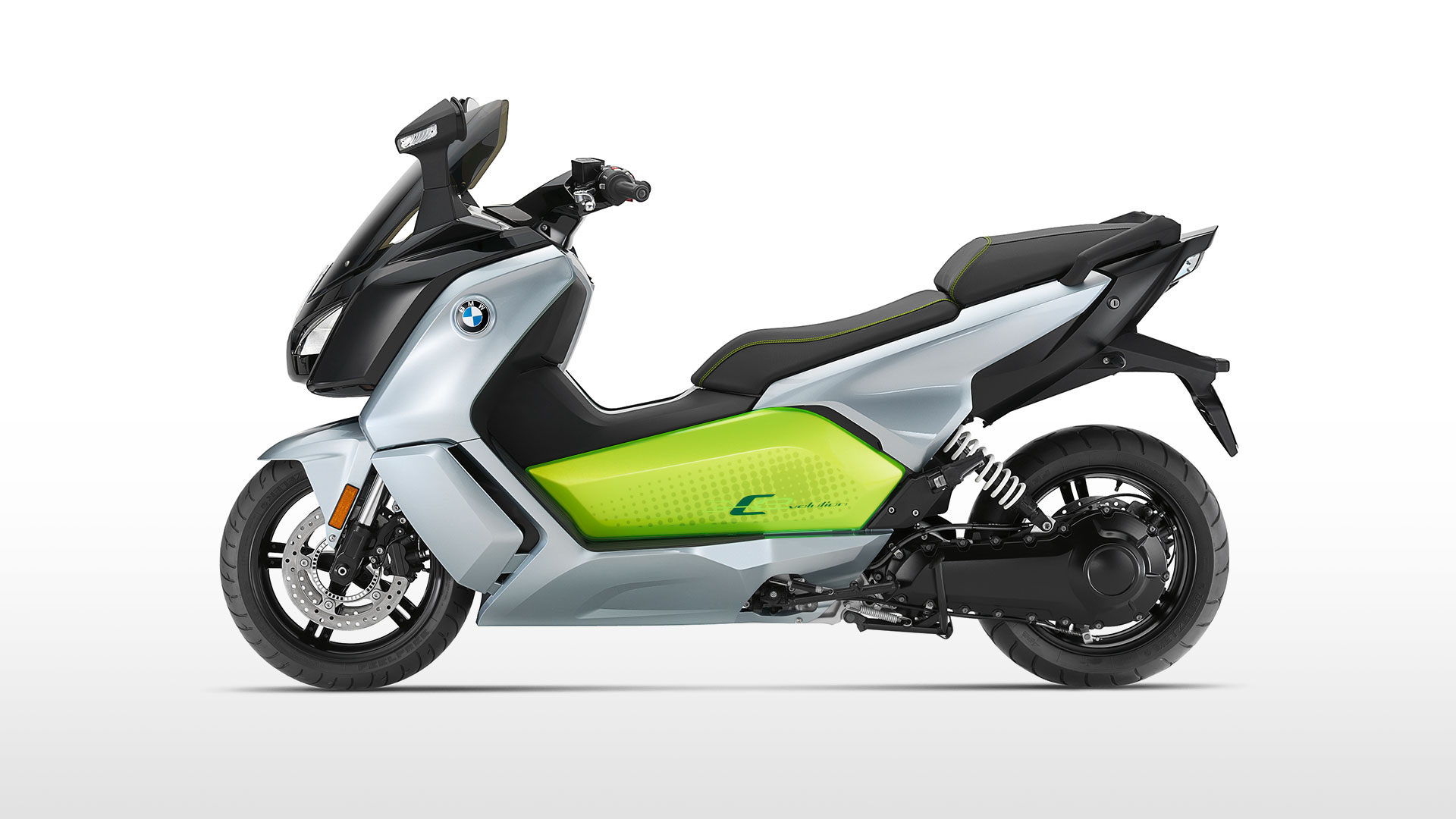
As with any emerging technology, electric scooters have initially suffered the same drawback as their automotive counterparts in that they weren’t cheap to buy. That has made people reluctant to ditch their traditional putt putt models.
But, mass-market demand is seeing prices fall and. Meanwhile, Chinese production lines are more than able to churn them out by the thousand. Indeed, NIU says it has sold some 380,000 e-scooters in 2,000 cities around the globe so far.
Aside from the perky performance, one of the other things to strike anyone who rides an e-scooter is the near silence that comes with it. The difference between riding an electric scooter and its petrol equivalent really is most noticeable in the noise department. That revvy sound is gone and it’s replaced by nothing save for the wind blowing through your nether regions and a tiny bit of tyre noise. That’s it.
“I had a journalist who was sceptical and he rode off on one, saying he’d be gone for 15 minutes,” added Joseph on the addictive appeal of riding an e-scooter. “He came back after a lot longer than that with a huge smile on his face. He loved the instant power and the fact that he could hear everything around him. He could hear people taking on the side of the street. It’s total freedom.”
Built for cities
So, NIU seems to have nailed it with those Bosch motors and Panasonic batteries providing the torque and eliminating the revvy petrol engines of old. Meanwhile, the styling is reasonably conservative but functional. With one of these machines you’re not getting BMW design aesthetics, but this pair of e-scooters are a lot more affordable. The N-GT will cost around £4,000 (about US$5,000, AU$7,000), while the M+ will set you back in the region of £2,300 (about US$3,000, AU$4,000).
And, although a NIU might be reasonably no-frills, it still comes armed with everything you need in terms of day-to-day stuff. So there are essentials like a USB charging port for your phone and that app also flags up where your bike is when it’s submerged in a sea of other two-wheeled machines. Basic stuff, admittedly, but also very useful.
The company has plans to keep opening physical stores alongside their online sales outlets too. So far they’ve been focusing on cities that are most open to the idea of e-powered vehicles. “Paris, for example, is very progressive when it comes to electric vehicles,” added Joseph. “And we as a company are also working very closely with the sharing companies. We’re circulating our data with them and vice versa.”
“By doing that they can create better systems, which then offer improved sharing options for the end user. What we’re really looking at is how we can help to solve some of the problem parts of the urban commute. That’s a challenge because every city is different.”
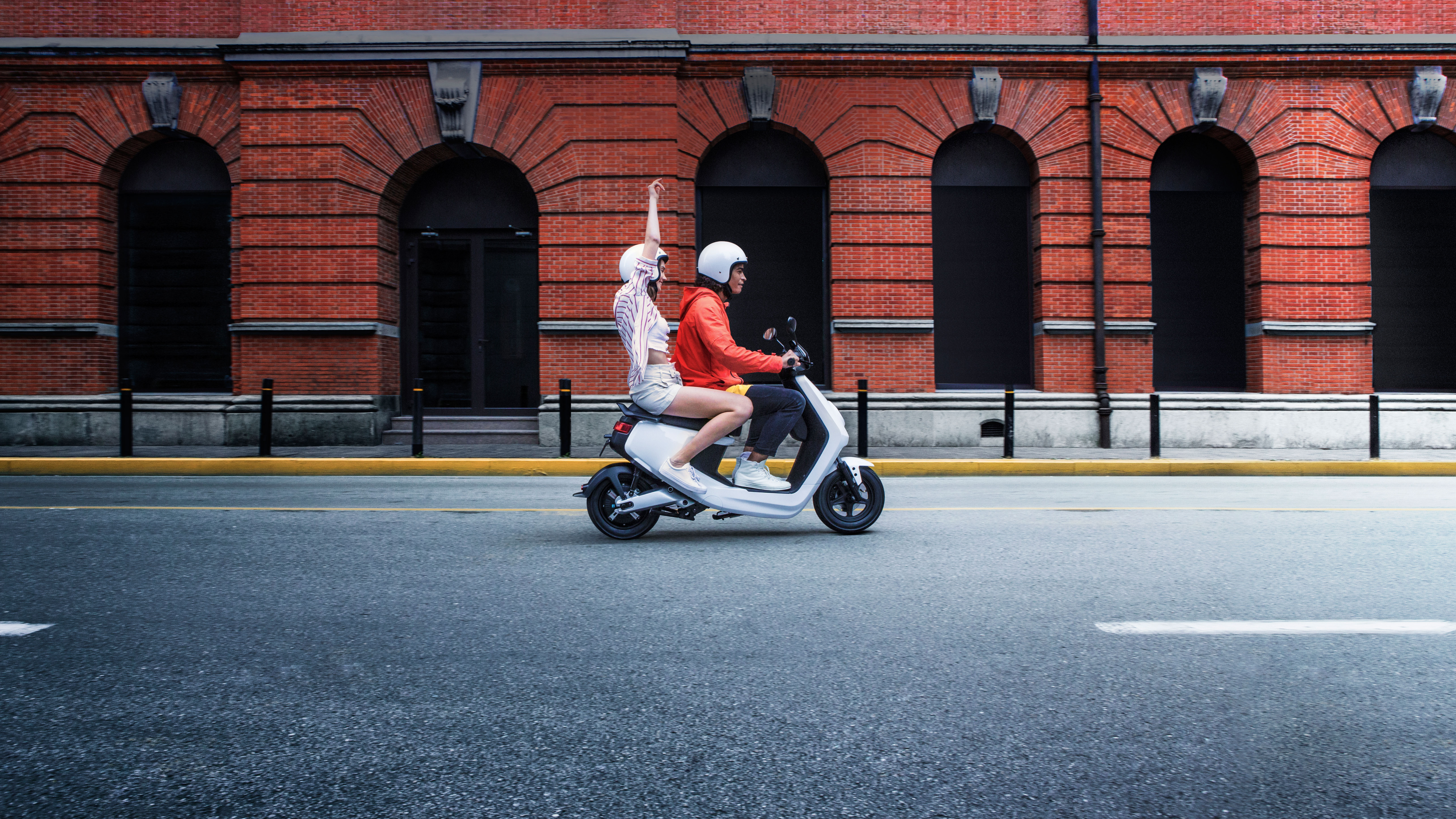
While every city might have its own idiosyncrasies, there’s no doubt that many densely populated locations are, quite simply, suffocating. While modern-day petrol and diesel power plants are way better than they used to be, fumes from old and unreliable combustion engines have a part to play in that. In that respect electric is a great way to go.
And, ultimately, the end is nigh for the combustion engine anyway. The UK, for example, wants to ban this form of old school engineering altogether by 2040. So the humble e-scooter could have more of a future than we think.

Rob Clymo has been a tech journalist for more years than he can actually remember, having started out in the wacky world of print magazines before discovering the power of the internet. Since he's been all-digital he has run the Innovation channel during a few years at Microsoft as well as turning out regular news, reviews, features and other content for the likes of TechRadar, TechRadar Pro, Tom's Guide, Fit&Well, Gizmodo, Shortlist, Automotive Interiors World, Automotive Testing Technology International, Future of Transportation and Electric & Hybrid Vehicle Technology International. In the rare moments he's not working he's usually out and about on one of numerous e-bikes in his collection.